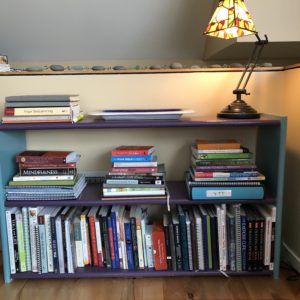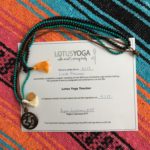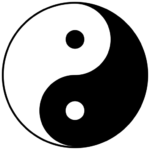 Yoga Teacher Training has found itself in the spotlight and presumably would be happy not to have done so. This, from a client, just arrived in my inbox: https://www.nytimes.com/2019/04/06/style/corepower-yoga-teacher-training.html?smid=nytcore-ios-share So, yes, even the NY Times has taken a penetrating look into the training of potential Yoga Instructors.
Yoga Teacher Training has found itself in the spotlight and presumably would be happy not to have done so. This, from a client, just arrived in my inbox: https://www.nytimes.com/2019/04/06/style/corepower-yoga-teacher-training.html?smid=nytcore-ios-share So, yes, even the NY Times has taken a penetrating look into the training of potential Yoga Instructors.
If you are one of the growing numbers who roll out their mats in a Yoga studio, you have most likely heard a teacher say “I have my 200 hours.” This means that your teacher has undergone a study of 200 hours (now stretching to 300, 500 and 1,000 hours). When you stop to consider how many thousands of years Yoga has been around, don’t you wonder how much one can learn in 200 hours? Other questions arise such as does one really need a certificate to teach? Is the high cost of training suspicious? If I really enjoy just taking classes, do I really need to become a teacher as well?
DISCLAIMER.
I am NOT an expert on the subject. I completed my 200 hours and am currently pursuing an additional 300 hours through the Summers School of Yin Yoga (https://joshsummers.net/school/). My passion is to study. After a long and successful career as a professional ballet dancer and teacher, I transitioned to the fitness industry first teaching pre and post-natal classes as my family was growing, seguing into group exercise and finally personal training. I have participated and competed in a number of sports and have had the privilege of working with a top level cycling coach, thus learning a great deal more about endurance training, nutrition, the systems of the body, and, of course, performance.
 And then came my introduction to Yoga, just 3.5 years ago. Almost immediately thereafter I pursued my initial YTT believing that, though I had little interest in teaching, that would be the best resource for learning as much about Yoga in an intensive fashion as possible. Over a year later I completed my training, but in the meantime had found yet more exciting Yoga training which I jumped into with enthusiasm. Let me say here that I am deeply indebted to all the teachers with whom I have studied. (especially Terry Cochburn, Josh Summers and Sage Rountree,). Clearly my personal experience colors my opinions to follow.
And then came my introduction to Yoga, just 3.5 years ago. Almost immediately thereafter I pursued my initial YTT believing that, though I had little interest in teaching, that would be the best resource for learning as much about Yoga in an intensive fashion as possible. Over a year later I completed my training, but in the meantime had found yet more exciting Yoga training which I jumped into with enthusiasm. Let me say here that I am deeply indebted to all the teachers with whom I have studied. (especially Terry Cochburn, Josh Summers and Sage Rountree,). Clearly my personal experience colors my opinions to follow.
Do we need to know all there is to know about a subject before we can teach it? I sincerely hope not! Were that so, a great number of highly gifted teachers would be side-lined. But we do need to be open, observant, and sensitive to the needs of our students, willing to say “I don’t know, but I’ll find out.” We need to leave our egos at the door and lead a lifetime of continuing study so that we can safely care for our students and never cause physical, mental or emotional harm.
YOGA ALLIANCE
Yoga Alliance is: “…the largest international nonprofit association representing the yoga community. We support the integrity and diversity of yoga teaching.” Many of us are products of training that was sanctioned by YA and many of us are members of YA as well.
Be on the alert! Yoga Alliance is taking a hit from many sides. Claims range from profit motivation to encouraging a cookie cutter curriculum that can be damaging in some cases. If you’re interested, you will find it easy to check into.
200 HOURS?
 Perhaps if a student enters YTT with a background in exercise science or something similar, 200 hours will provide a good foundation. In my own experience, I began with decades of training and professional practice , but little to no experience with Yoga. Yes, I learned many asanas and how to teach them. My 200 hour teacher was generous in teaching the principles of Ayurveda as well. What I was left with was a growing confidence teaching the physical components of Yoga practice, but in awe of teachers who were able to delve so deeply into the other and more spiritual aspects – you know, all about Patanjali, etc. My own training was very generic as my teacher did not want to label her teaching as one school of Yoga or another. I am grateful to her for that.
Perhaps if a student enters YTT with a background in exercise science or something similar, 200 hours will provide a good foundation. In my own experience, I began with decades of training and professional practice , but little to no experience with Yoga. Yes, I learned many asanas and how to teach them. My 200 hour teacher was generous in teaching the principles of Ayurveda as well. What I was left with was a growing confidence teaching the physical components of Yoga practice, but in awe of teachers who were able to delve so deeply into the other and more spiritual aspects – you know, all about Patanjali, etc. My own training was very generic as my teacher did not want to label her teaching as one school of Yoga or another. I am grateful to her for that.
FUNCTIONAL ALIGNMENT.
Devising a training plan that will pass the judgment of YA for accreditation may be responsible for so many teachers floating about in the Yoga universe, teaching that there is only one way to execute a pose. One of the blessings of my introduction to and work with Yoga for Athletes and Yin Yoga is the understanding that there is no one way to do something, no one perfect alignment. Just as each of us is (physically, mentally and spiritually) our own uniquely designed individual, so our practice must be functionally appropriate for our personal and particular bodies and minds.
 The absolute beauty of working with functional alignment is that practice and teaching are ever new, ever freshly creative and energized.
The absolute beauty of working with functional alignment is that practice and teaching are ever new, ever freshly creative and energized.
On a personal level, though I have studied and worked with anatomy and exercise physiology for many years, and learned much of the science behind performance, maintenance, injury including prevention and rehabilitation, it was not until I had the good fortune to participate in a basic cadaver lab through Dartmouth Medical School that I was able to connect the dots. Indeed, to be a personal trainer, athletic coach or Yoga instructor, continuing education is a gift as well as a mandate!
$.
Ah, yes. YTT is very, very expensive. Yeah, there’s the old “you get what you pay for” thing, and yes, of course, a YTT teacher should be compensated appropriately for his or her hours and hours of course development, organizing and teaching what may well become life-altering for students, but has the ideal slipped down that proverbial slope to financial opportunity? If we, the students, expect a great deal from our teachers, yes, then, we, the students, should pay them for what they give us. On the other hand, if the YTT presenter considers the work primarily from the point of view of financial enhancement, perhaps he or she should at least try to refocus.
I sit squarely in the middle of the fence on this one as I respect the professional’s need to be adequately paid for the work done, but not motivated by desire to swell business profits. Expertise, I believe, is worth the cost!
Recently I learned of J Brown who has an extensive website, blog, and podcasts. In 2015 he addressed this issue: https://www.jbrownyoga.com/blog/2015/7/pros-and-cons-of-yoga-teacher-training Then just this month he said in part: ““After twenty years of providing yoga teacher training at premium-priced 200, 300, or 500-hour increments, the yoga profession is beginning to reckon with the unintended consequences of relying so heavily on this deeply flawed economic instrument. …The best way to disrupt a failing system is to create something better.” https://www.jbrownyoga.com/blog/2019/4/reimagining-yoga-teacher-training
YOUR PRACTICE.
What do you think? The practice of Yoga is embraced in as many ways as there are people to embrace it. For some it is all about the asanas and fitness, for others it is most instructive with respect to meditation, Pranayama, or relaxation. To still more, Yoga literally links Yin and Yang.  It is about lifestyle, balance, medicine and spirituality just as much as it is about strength and flexibility. As you go to your mat, my recommendation is to make your Yoga your own. Whatever upheavals may rage in the Yoga community (and there are more than just ‘200 hour’ arguments!), leave them, for awhile anyway.
It is about lifestyle, balance, medicine and spirituality just as much as it is about strength and flexibility. As you go to your mat, my recommendation is to make your Yoga your own. Whatever upheavals may rage in the Yoga community (and there are more than just ‘200 hour’ arguments!), leave them, for awhile anyway.
Most of all, I encourage you to choose well before you entrust yourself to the teaching of another. Vet your teachers as diligently as you would interview a new pediatrician. Once you are satisfied that the teacher (or, of course, teachers) you have chosen is/are well qualified in areas that are important to you, try a few classes first to be sure you value that teacher’s personality and potential connection. Once decided, go for it. Learn what you can. Question what you will. Practice. Relish. Enjoy. NAMASTE.
